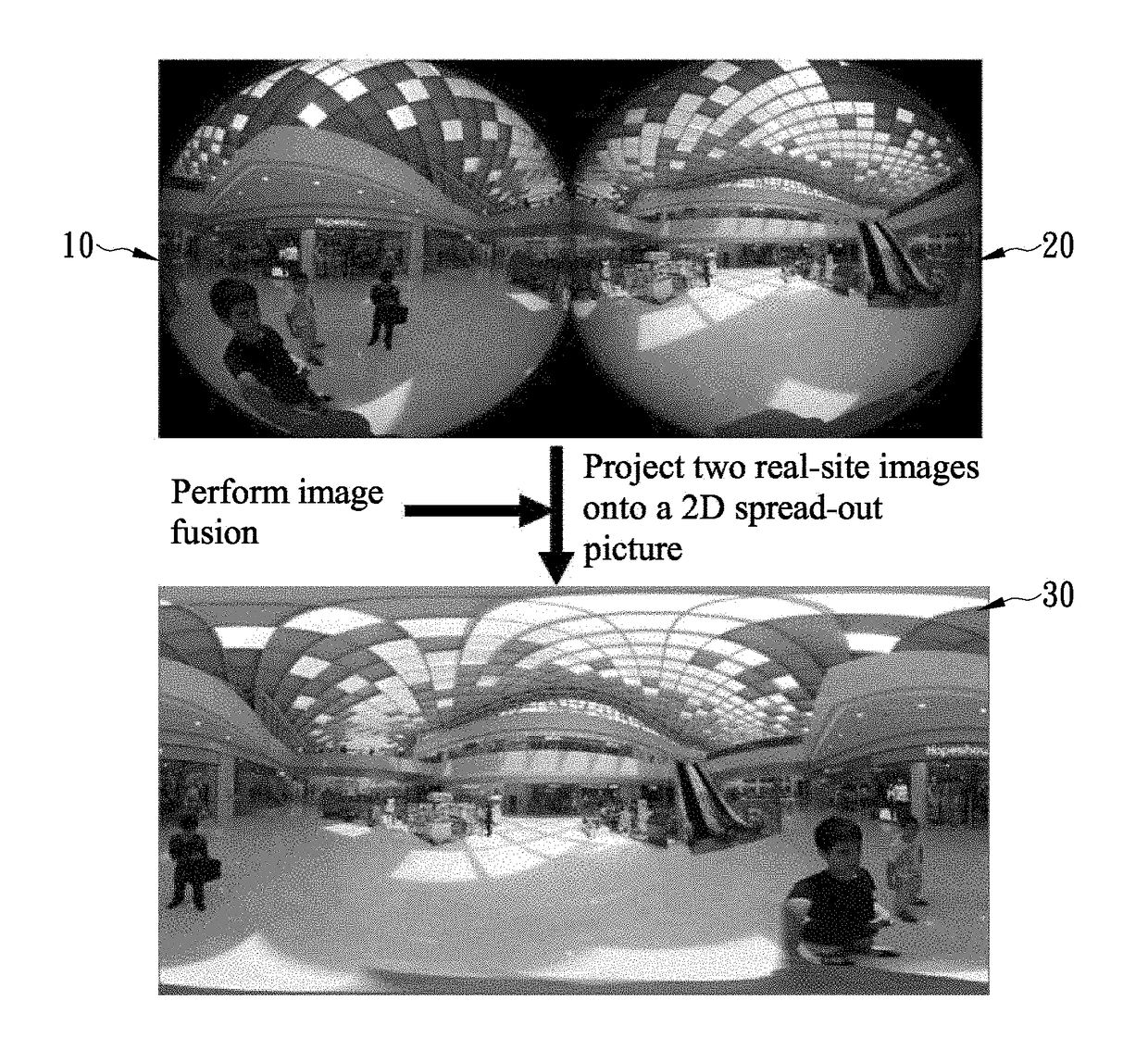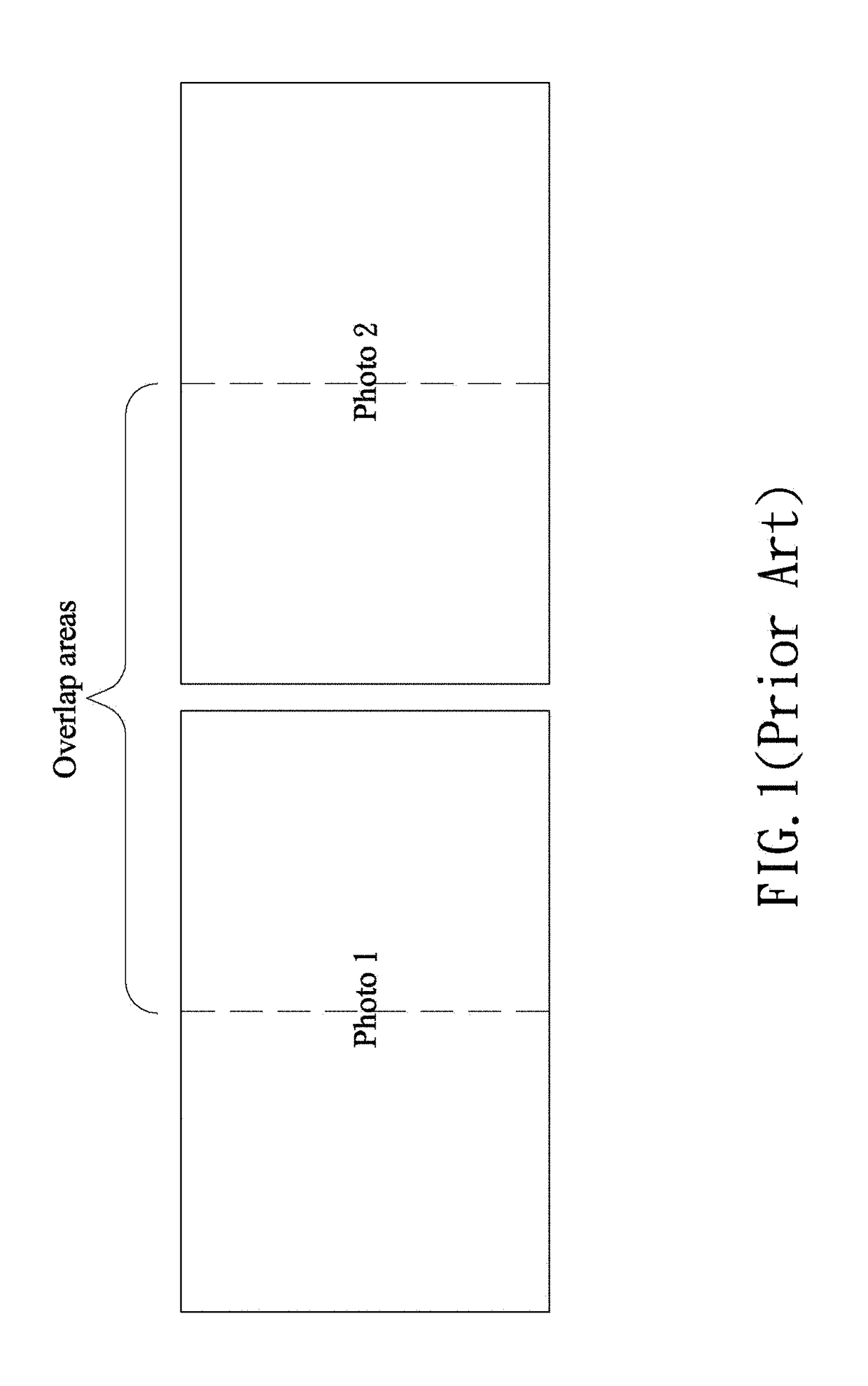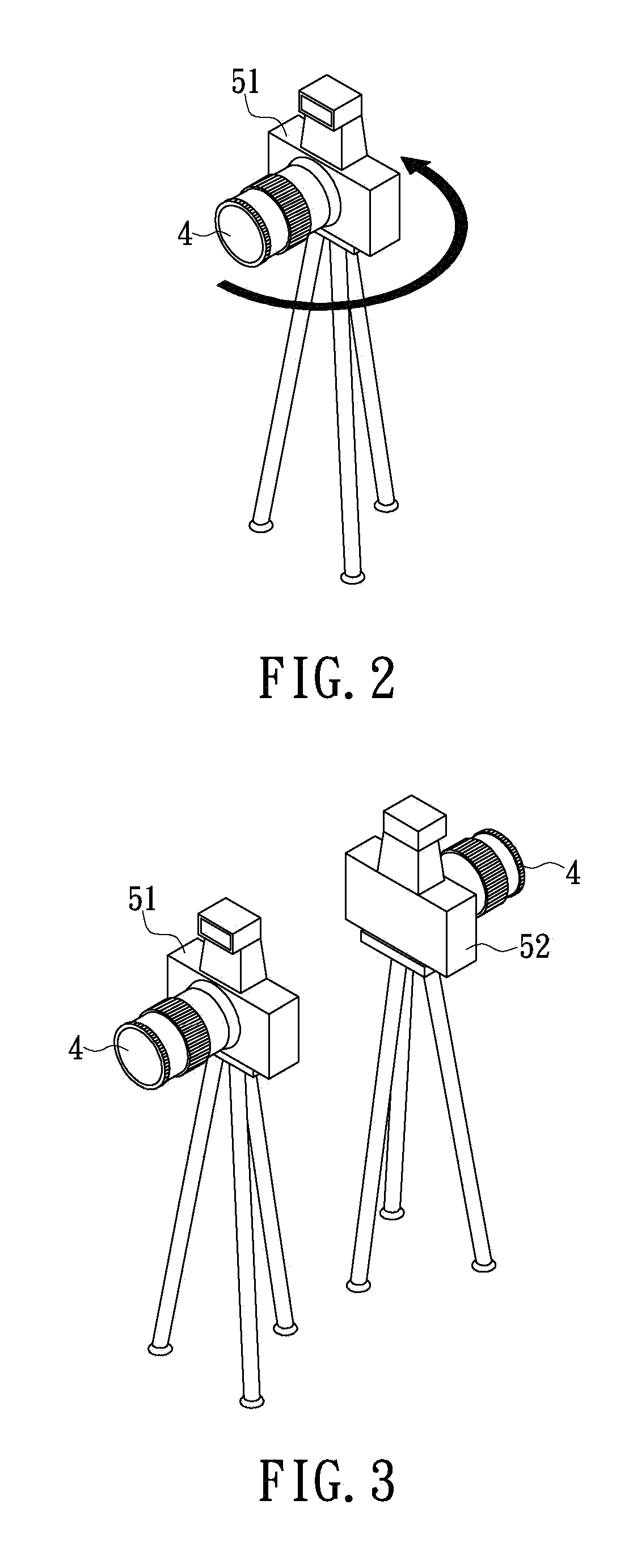Method for stitching together images taken through fisheye lens in order to produce 360-degree spherical panorama
a fisheye lens and panorama technology, applied in the field of image processing methods, can solve the problems of poor image quality when magnified, series of photos taken of the same site cannot be compared, and still cameras do not provide high image resolution, so as to achieve high image quality
- Summary
- Abstract
- Description
- Claims
- Application Information
AI Technical Summary
Benefits of technology
Problems solved by technology
Method used
Image
Examples
Embodiment Construction
[0022]As is well known in the art, a high-end digital single-lens reflex camera can be mounted with a fisheye lens to widen the view angle of the existing lens. Generally, a fisheye lens has a view angle greater than 180 degrees; that is to say, if a digital single-lens reflex camera mounted with a fisheye lens takes two images of a scenic spot in opposite directions respectively, each image taken will have more than a hemispheric field of view, which allows the images to capture a complete spherical view of the scenic spot.
[0023]Based on the image-taking principle stated above, the inventor of the present invention developed a method for stitching together images taken through a fisheye lens in order to produce a 360-degree spherical panorama. The method is applied to an electronic device such as a smartphone, digital still camera, or computer, in order for the electronic device to read at least two real-site images taken respectively from different positions by at least one digita...
PUM
 Login to View More
Login to View More Abstract
Description
Claims
Application Information
 Login to View More
Login to View More - R&D
- Intellectual Property
- Life Sciences
- Materials
- Tech Scout
- Unparalleled Data Quality
- Higher Quality Content
- 60% Fewer Hallucinations
Browse by: Latest US Patents, China's latest patents, Technical Efficacy Thesaurus, Application Domain, Technology Topic, Popular Technical Reports.
© 2025 PatSnap. All rights reserved.Legal|Privacy policy|Modern Slavery Act Transparency Statement|Sitemap|About US| Contact US: help@patsnap.com



